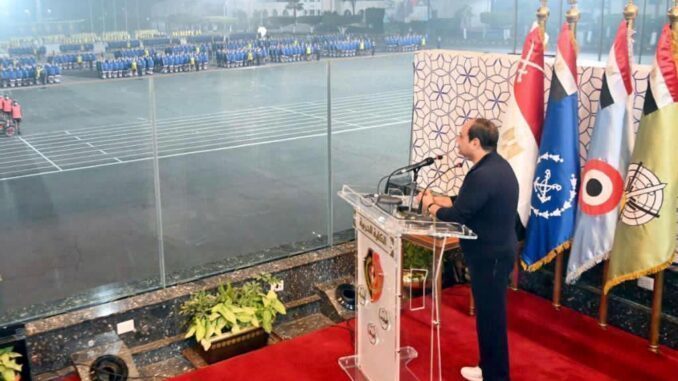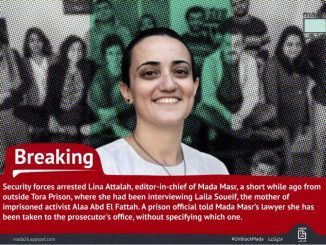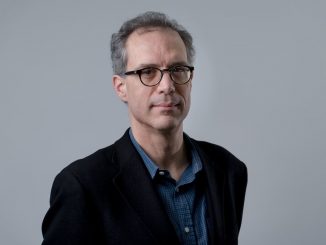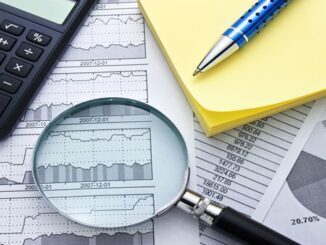
Sisi says the country spent $400 billion to address poverty and improve people’s living
Three days ago, Egypt’s Abdel Fattah al-Sisi said Egypt spent 400 billion dollars over the past seven years to tackle poverty,
Speaking at the World Youth Forum, Al-Sisi said:
“There were no other solutions, and this amount of effort should not be attributed to the President of the Republic alone, but also to the government and state agencies.”
More than half of the country’s population live below the poverty line and nearly 17 per cent of the youth are unemployed.
The country has cut back on subsidies and a number of financial aid packages for the poor while building luxurious palaces and buying planes for Al-Sisi.
Meanwhile, the Egyptian regime continues holding celebrations and mass events that cost the state treasury millions of dollars, including the World Youth Forum, which is held annually, with the aim of promoting the state’s “achievements” in areas such as infrastructure and energy.
Sisi’s Egypt
A few days ago, Robert Springborg published a lengthy report on POMED, titled, “Follow the Money to the Truth about Al-Sisi’s”, saying that Egypt under Abdel Fattah al-Sisi has become a beggar state, its economy ever more reliant upon foreign support, especially loans.
Dr. Springborg continued, saying: Al-Sisi conducts economic policy as if the country were an oil-rich rentier state like Saudi Arabia or a successful mercantile one like China, though Egypt is neither.
The regime’s financial appetites are gargantuan, but it is luxuries, not basic necessities for a growing population, that absorb the bulk of state revenues. Al-Sisi, who came to power through a coup, relies on the “wow” factor of mega-projects and weapons purchases to bolster his legitimacy.
To pay for these extravagances, the government has squeezed the citizenry through cuts in consumer subsidies, regressive taxation, and increased fees for “public” services. Egyptians suffer under stagnating wages, rising prices, and high unemployment, with some 30 million citizens living on incomes of less than $3.20 a day.
To extract revenue the regime also squeezes the private sector, including through the military’s gobbling up of numerous profitable private enterprises.
Al-Sisi’s Egypt must increasingly rely on foreign credit for economic survival. Egypt’s total national debt, now $370 billion, has quadrupled since 2010. Repayment of domestic and foreign debt consumes over one-third of Egypt’s budget, more than double the amount in 2009.
There are remarkable similarities between Lebanon’s now abjectly failed economy and Egypt’s struggling one. The devastating consequences of Lebanon’s economic collapse would be even worse if repeated on an Egyptian scale. Best, therefore, for Egypt’s “friends” to take corrective steps before that happens, rather than continue to indulge al-Sisi’s regime.
Sisi’s luxurious life
A few days ago, Egypt’s Abdel Fattah El-Sisi issued a sudden decision to stop granting food subsidies cards to newly married couples, declaring that the subsidy has been the reason for the state’s decades-long delay toward development, said Usama Gawish, an Egyptian journalist living in London, in a recent piece.
Mr. Gawish goes on saying: Unfortunately, this decision was preceded four months ago by a similar decision to cut the subsidies for bread, thereby increasing the price of the commodity, which is a staple food for Egypt’s poor.
Sisi – as usual – seemed very upset about the size of the burdens borne by the government and demanded the country’s poor – as usual – to bear the costs stemming from the removal of subsidies.
This they are called upon to do for the sake of the nation’s progress. Still, it seems that the austerity slogans flaunted by Sisi are directed to the poor only; they mean nothing to him, as he continues to enjoy the people’s money, buying new planes, and building luxurious palaces.
A few months ago, Sisi bought a giant Boeing B747-8 luxury plane, a Jumbo Jet, which costs about $418 million to replace the current presidential aircraft.
Sisi’s new plane has been in Boeing’s airfields since 2012 after the German company Lufthansa cancelled its purchase order, as it was part of a deal concluded by Lufthansa with Boeing to supply it with 20 planes. The German company accepted 19 of them and rejected this plane.
According to the German Flag Review website, which specializes in aircraft, the reason for Lufthansa cancelling the purchase of the Boeing B747-8 is due to two reasons:
The first is that Boeing has included the plane in flight tests more intensively than was agreed in the contract, in addition to the presence of strange technical changes in the plane.
Life came back to the B747-8 plane after it was included in the Boeing sales orders last February so that the company’s technicians began operating the mechanical systems in July. Then, in August, the plane took off directly to Boeing Airport in Everett Washington, where it appeared on the tarmac under the name “SU-EGY,” which indicates that it had become affiliated with the Egyptian government because SU is the symbol of the Arab Republic of Egypt.
Paradoxically, the value of this plane is slightly less than the price of 14 jets purchased by the presidency during the 30-year reign of the late President Hosni Mubarak. Their combined value amounted to $507 million, while Sadat owned two Boeing 707s, which were gifted to him by Sheikh Zayed bin Sultan, the ruler of the Emirates. He also had a helicopter given to him by former US President Jimmy Carter.
On the other hand, Gamal Abdel Nasser preferred to charter a plane for his transportation and did not buy a presidential plane during the long years of his rule.
The B747-8 will replace Egypt’s current Airbus A340-200 SU-GGG presidential aircraft in service since 1995.
This is the fifth presidential plane Sisi has purchased since he took office. He had previously purchased four luxury planes in 2016 of the “Falcon-7X” model produced by the French company Dassault Aviation, in a deal worth €300 million ($354 million).
The Falcon is 23.2 meters long, 2.34 meters wide and 1.88 meters high. It can carry eight passengers, other than the cabin crew and can fly approximately 11,000 kilometers. It comes equipped with many services such as satellite phones, coffee makers, microwave ovens for heating food, and spacious sitting and sleeping areas.
This deal was concluded while Egypt was facing a severe economic crisis. Only three months before, the government decided to liberalize the pound’s exchange rate, raise the prices of petroleum products, and lift subsidies on electricity and other essential materials in November 2016.
Thus, during only seven years, during the period of his rule, Sisi has bought planes worth $774 million. He comes to reduce the ration and bread subsidies on the pretext that there is no money, asking the people to bear it, but he cannot bear to use presidential planes dating back to the eras of previous regimes.
Since 2014, Sisi has also built at least three new presidential palaces and more than ten presidential villas to be added to the 30 historic palaces and presidential rest houses that Egypt already owned.
The massive Sisi Palace complex that is being built in the New Administrative Capital covers about 2.5 million square meters. This entire area is equivalent to approximately 607 feddans (625.2 acres) of agricultural land. As for the presidential residence, it is estimated to be around 50,000 square meters, ten times the size of the White House, which is only 5,000 square meters.
Al-Sisi is building another luxurious palace, in the style of the White House, on the seashore in the new city of El Alamein, which he decided to make as a summer resort for the government to enjoy the cool Mediterranean air, instead of the hot atmosphere of Cairo.
Sisi built the third palace at the beginning of his reign in the military district of Hykestep. It is a luxurious palace containing an airstrip, green gardens and administrative buildings. Next to it are four luxurious villas containing private swimming pools that were said to be dedicated to Sisi’s senior military aides.
Al-Sisi does not deny that he built all these palaces. In a speech delivered on 14 September 2019 he admitted: “Yes, we have built palaces and will build more but not for myself. I’m working to build a new Egypt.”
As a result, Egypt, the big country Sisi mentions when faced with criticism for spending billions of pounds of public money on presidential palaces for himself and his family, has become increasingly impoverished with insufficient money to support or provide for its citizens.



